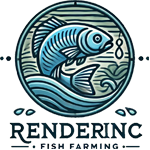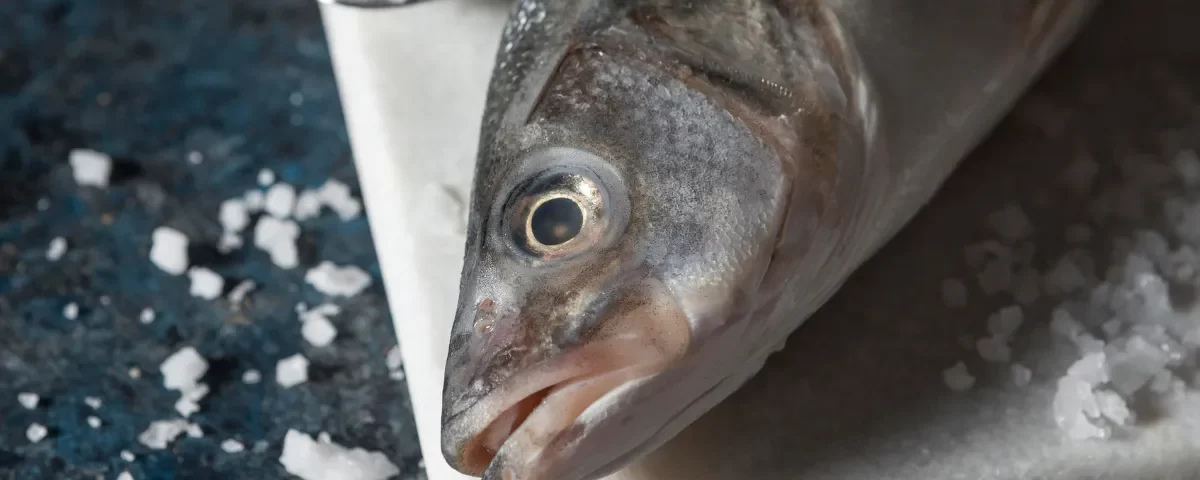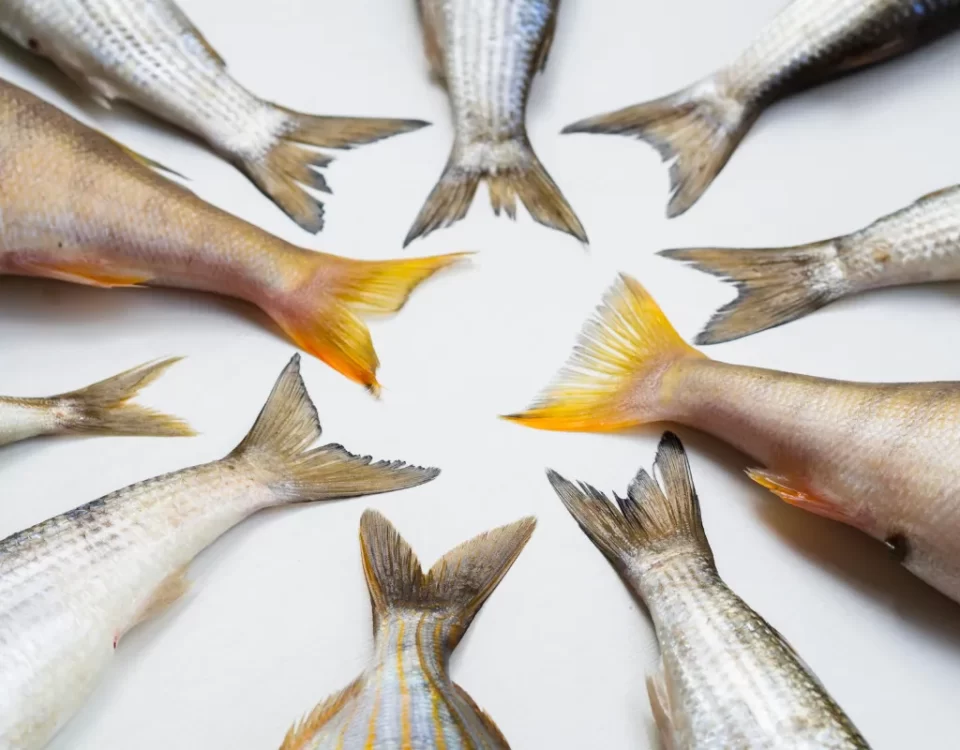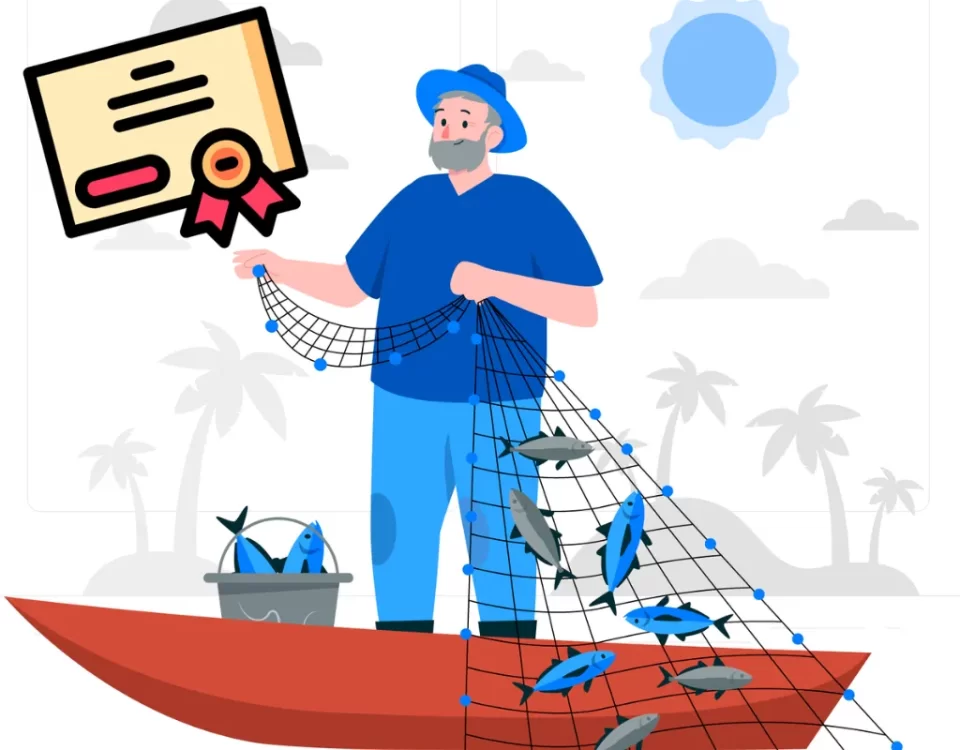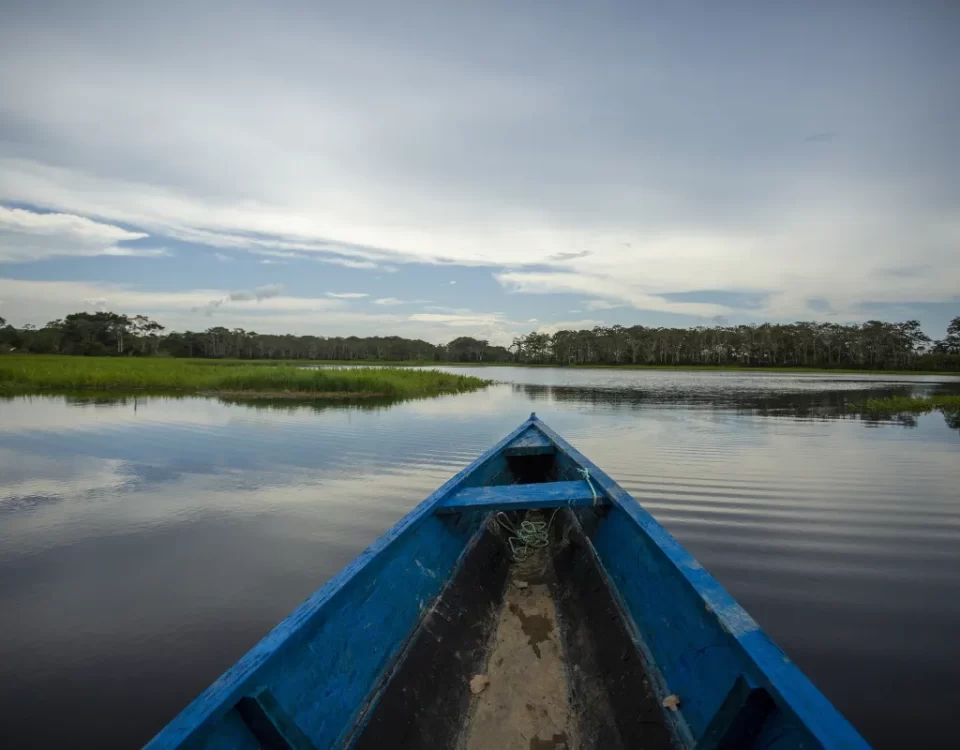The Role of Fish Farming in Global Food Security

Aquaculture Automation: Technology for Smarter Fish Farming
agosto 26, 2024
Best Practices for Organic Fish Farming
agosto 28, 2024The Benefits of Fish Farming
Fish farming, also known as aquaculture, plays a significant role in ensuring global food security by providing a sustainable source of high-quality protein. Fish are rich in essential nutrients such as vitamins, minerals, and proteins, making them a valuable addition to the human diet. Notably, fish are an excellent source of omega-3 fatty acids, which are essential for heart health and cognitive function. Therefore, incorporating fish into one’s diet can have numerous health benefits.
High Protein Content and Essential Nutrients
Fish farming is a crucial industry that contributes to meeting the growing demand for protein-rich food worldwide. Fish like salmon, trout, and tilapia have high protein content, making them an ideal source of lean protein. This makes fish a preferred choice for individuals looking to maintain a healthy diet and lifestyle. Furthermore, fish are rich in essential nutrients such as vitamin D, iodine, and selenium, which are important for various bodily functions.
Alleviating Strain on Wild Fish Populations
Overfishing and environmental degradation have put immense pressure on wild fish populations, leading to depletion and endangerment of many species. Fish farming can help alleviate this strain on natural ecosystems by providing a sustainable alternative to fishing from the wild. By cultivating fish in controlled environments, aquaculture can reduce the dependency on wild fish stocks and promote responsible consumption practices.
Sustainability and Environmental Benefits
Fish farming practices have evolved to focus on sustainability and environmental stewardship. Modern aquaculture techniques incorporate measures to minimize environmental impact, such as efficient feed management, waste reduction, and water conservation. By implementing these sustainable practices, fish farmers can ensure the longevity of their operations while safeguarding the surrounding ecosystems. Additionally, aquaculture can contribute to local economies by creating job opportunities and supporting communities that rely on the fishing industry.
In conclusion, the benefits of fish farming extend beyond providing a consistent food supply. Through sustainable practices and responsible management, aquaculture can play a crucial role in addressing global food security challenges, promoting healthy diets, and conserving natural resources for future generations.
Global Food Security Challenges
In our rapidly evolving world, global food security remains a pressing concern. With the global population steadily rising, there is an ever-increasing demand for sustainable food sources to feed billions of people. This surge in population growth is further exacerbated by the adverse effects of climate change, which disrupts traditional agricultural practices and leads to unpredictable harvests.
Moreover, the availability of limited arable land adds another layer of complexity to the challenge of ensuring food security for all. As urbanization continues to encroach upon agricultural territories, the space for traditional farming methods diminishes. In this scenario, it becomes crucial to explore alternative food production techniques that can efficiently utilize resources without further damaging the environment.
One such promising solution lies in the realm of fish farming. Aquaculture, or fish farming, has emerged as a viable method to address the increasing demand for food. Unlike traditional agriculture, aquaculture requires less land and water to produce significant yields, making it a more sustainable option for meeting the nutritional needs of a growing population.
With advancements in fish farming technologies and practices, the industry has the potential to significantly contribute to enhancing global food security. By leveraging aquaculture methods, countries can reduce their dependence on traditional farming practices and open up new avenues for sustainable food production. Through strategic investments in aquaculture infrastructure and research, governments and organizations can pave the way for a more secure and resilient food system that can weather the challenges posed by population growth, climate change, and limited arable land.
Environmental Impact of Fish Farming
Fish farming, also known as aquaculture, has become a crucial component of global food security. However, the environmental impact of fish farming has raised concerns regarding its sustainability. One significant concern is habitat destruction caused by coastal fish farms. Clearing mangroves and wetlands for farm construction can disrupt the delicate balance of coastal ecosystems, leading to loss of biodiversity and vital habitats for other marine species. Additionally, the release of excess nutrients and waste from fish farms into water bodies can contribute to pollution, leading to algae blooms, oxygen depletion, and water quality degradation.
Furthermore, the use of antibiotics in fish farming to combat diseases poses a threat to aquatic environments. Antibiotics can leach into surrounding waters, promoting the development of antibiotic-resistant bacteria and disrupting the natural microbial balance. To address these environmental challenges, the aquaculture industry is increasingly embracing sustainable practices to minimize its negative impact.
1. Habitat Preservation
Implementing practices that prioritize habitat preservation can help mitigate the habitat destruction associated with fish farming. Utilizing floating cages or land-based closed containment systems can reduce the need to clear coastal areas for farm construction, thus preserving critical marine habitats. By minimizing physical alterations to coastal ecosystems, fish farmers can protect valuable habitats and prevent negative impacts on local biodiversity.
2. Pollution Control
Controlling and managing waste discharge is essential to prevent pollution from fish farms. Employing water recirculation systems and waste treatment technologies can help minimize the release of excess nutrients and waste into surrounding water bodies. By monitoring water quality and implementing strict waste management protocols, fish farmers can reduce their ecological footprint and maintain a healthier aquatic environment for both farmed fish and wild species.
3. Reduced Antibiotic Use
Efforts to reduce the reliance on antibiotics in fish farming are crucial for preserving environmental health. Embracing proactive health management strategies, such as vaccination programs and improved husbandry practices, can help prevent disease outbreaks and reduce the need for antibiotics. Additionally, investing in research and development of alternative treatments, such as probiotics and plant-based additives, can offer sustainable solutions for disease control in aquaculture, without compromising environmental integrity.
In conclusion, the environmental impact of fish farming requires thoughtful consideration and continuous innovation to ensure the sustainability of the industry. By adopting sustainable practices that prioritize habitat preservation, pollution control, and reduced antibiotic use, fish farmers can minimize their ecological footprint and contribute to a more environmentally responsible aquaculture sector.
Technological Advancements in Fish Farming
In the realm of fish farming, technological advancements have paved the way for significant progress in the industry, addressing challenges of efficiency and sustainability. One of the most notable advancements is the adoption of recirculating aquaculture systems (RAS). These systems enable fish to be raised in a controlled environment where water is continuously filtered and reused, minimizing waste and reducing the environmental impact of traditional open-water farming.
Recirculating Aquaculture Systems (RAS)
RAS technology leverages advanced filtration and water treatment processes to maintain optimal water quality for fish growth. By closely monitoring and regulating key parameters such as temperature, dissolved oxygen levels, and ammonia concentrations, RAS facilities provide a stable and healthy environment for fish. This controlled setting not only enhances fish health and growth rates but also reduces the risk of disease outbreaks, leading to improved production efficiency.
Additionally, genetic advancements in fish species have played a crucial role in enhancing the productivity and sustainability of fish farming operations. Through selective breeding and genetic engineering, researchers have developed fish strains with desirable traits such as fast growth, disease resistance, and better feed conversion ratios. These genetically improved fish varieties not only increase yields but also decrease the reliance on external inputs, making fish farming more economically feasible and environmentally friendly.
Genetic Improvements in Fish Species
Moreover, the integration of digital technologies such as real-time monitoring, data analytics, and automation has revolutionized the way fish farms are managed. Farmers can now remotely monitor water quality parameters, feed consumption patterns, and fish behavior, allowing for timely interventions and decision-making. This data-driven approach not only optimizes resource utilization but also minimizes the environmental footprint of fish farming operations.
In conclusion, the ongoing advancements in fish farming technologies are reshaping the landscape of aquaculture by emphasizing efficiency, sustainability, and innovation. By harnessing the power of RAS, genetic improvements, and digital solutions, fish farmers are able to meet the increasing global demand for seafood while minimizing the industry’s environmental impact. The continuous evolution of technology in fish farming holds great promise for ensuring food security and economic prosperity in the years to come.
Socio-Economic Implications of Fish Farming
Fish farming plays a crucial role in enhancing socio-economic development, particularly in rural communities across the globe. One of the key benefits of fish farming is its ability to create employment opportunities for local populations. By establishing fish farms, individuals can be employed in various aspects of the industry, such as pond construction, fish feeding, maintenance, and marketing. This not only provides jobs but also contributes to skill development and economic empowerment within these communities.
Moreover, fish farming serves as a significant source of income generation for many individuals living in rural areas. Small-scale fish farmers, in particular, can earn a steady income through the sale of fish products in local markets or to larger distributors. This additional income helps improve the quality of life for farmers and their families, enabling them to access better education, healthcare, and other necessities. As a result, fish farming plays a vital role in poverty alleviation by lifting communities out of poverty and promoting sustainable livelihoods.
In developing countries where access to nutritious food is often limited, fish farming serves as a valuable solution to improving food security and nutrition. Fish is a rich source of protein, essential nutrients, and omega-3 fatty acids, which are crucial for healthy growth and development. By promoting fish consumption through domestic production, fish farming helps address malnutrition and dietary deficiencies in these regions. This not only contributes to better health outcomes but also enhances overall food security by diversifying dietary options and reducing dependency on imported food sources.
Furthermore, the sustainability of fish farming practices in rural communities plays a key role in environmental conservation and natural resource management. By implementing responsible aquaculture methods, such as recirculating aquaculture systems and organic feed options, fish farmers can minimize environmental impact while maximizing production efficiency. This sustainable approach not only ensures the long-term viability of the industry but also fosters economic resilience and social well-being within rural communities.
Government Policies and Regulations
In the realm of fish farming, government policies and regulations play a pivotal role in shaping the trajectory of the industry towards sustainable practices. These regulations serve as the framework within which fish farmers operate, ensuring that their activities are in line with environmental protection, animal welfare, and food safety standards. By imposing guidelines on issues such as water quality management, feed composition, and disease prevention, governments can mitigate the negative impact that intensive fish farming can have on ecosystems.
Sustainable Practices Promotion
Government policies are increasingly geared towards promoting sustainable fish farming practices to safeguard aquatic ecosystems and meet growing global food demands. Through incentives such as tax breaks for environmentally friendly practices, subsidies for investing in efficient aquaculture technologies, and strict enforcement of regulations, governments can encourage fish farmers to adopt methods that minimize their environmental footprint. By mandating the use of recirculating aquaculture systems (RAS) or promoting the certification of farms by organizations like the Aquaculture Stewardship Council (ASC), policymakers can push the industry towards a more sustainable future.
International Cooperation
Given that fish farming is a global industry, international cooperation is essential in addressing common challenges and ensuring the industry’s long-term viability. Through platforms such as the Food and Agriculture Organization of the United Nations (FAO) and regional fisheries management organizations, countries can collaborate on issues like disease control, stock enhancement, and trade regulations. By sharing knowledge, best practices, and resources, nations can work together to overcome hurdles that no single country can tackle alone, fostering a more resilient and sustainable fish farming sector.
Trade Regulations Harmonization
One critical aspect of international cooperation in the fish farming industry is the harmonization of trade regulations to facilitate the smooth flow of seafood products across borders. By standardizing rules regarding import quotas, tariffs, and sanitary measures, countries can reduce trade barriers and promote a more efficient global seafood market. Harmonizing regulations also helps prevent the spread of diseases and invasive species through the movement of live fish eggs or larvae, safeguarding both domestic industries and ecosystems.
Case Studies of Successful Fish Farming Initiatives
1. Sustainable Aquaculture in Norway
In Norway, one of the world leaders in aquaculture, salmon farming has thrived due to its commitment to sustainability and innovation. Norwegian salmon farms have implemented strict environmental regulations to protect the ecosystem while producing high-quality fish. By focusing on responsible farming practices, such as proper waste management and disease prevention measures, Norway has achieved significant success in the global seafood market. Not only has this boosted the country’s economy, but it has also proven to be a reliable source of nutritious food for a growing population.
2. Integrated Fish Farming in Bangladesh
Bangladesh is a shining example of how integrated fish farming can transform rural communities and enhance food security. By combining aquaculture with rice farming in pond ecosystems, farmers in Bangladesh have increased their income and access to protein-rich foods. This approach not only contributes to sustainable agriculture practices but also addresses malnutrition issues in the region. Through government support and technical assistance, Bangladesh has created a successful model that benefits both the environment and the local community.
3. Tilapia Farming in Egypt
Egypt’s tilapia farming industry has experienced remarkable growth in recent years, becoming a vital component of the country’s agricultural sector. With favorable climatic conditions and strategic investment in research and technology, Egyptian farmers have been able to scale up their tilapia production efficiently. This has not only increased food availability domestically but has also boosted exports, generating revenue and creating employment opportunities. By adopting modern aquaculture methods and fostering partnerships with private enterprises, Egypt has become a global player in the tilapia market.
4. Marine Fish Farming in Chile
Chile’s marine fish farming industry, particularly focusing on species like salmon and trout, has become a key contributor to the country’s economic growth. Through investment in modern infrastructure, stringent regulations, and quality control measures, Chile has established itself as a top exporter of aquaculture products. By prioritizing sustainable practices and collaborating with both governmental and non-governmental organizations, Chile has been able to meet the increasing demand for seafood while safeguarding the marine environment. This success story highlights the significance of responsible aquaculture in supporting not only food security but also a thriving economy.
Future Outlook for Fish Farming
Trends in Fish Farming: The future of fish farming looks promising, with several trends driving the industry forward. One major trend is the increasing adoption of technology to enhance production efficiency and sustainability. From automated feeding systems to real-time monitoring of water quality, technology is revolutionizing how fish farms operate. Additionally, there is a growing focus on innovation in breeding practices to develop species that are more resistant to diseases and can thrive in changing environmental conditions.
Challenges Facing Fish Farming: Despite its growth potential, fish farming also faces significant challenges. One of the primary challenges is environmental sustainability. The industry must address concerns such as water pollution, habitat destruction, and overuse of resources to ensure long-term viability. Regulatory hurdles related to licensing, land use, and waste management pose additional challenges for fish farmers. Balancing the need for expansion with environmental stewardship will be crucial for the sector’s future success.
Opportunities for Growth: Fish farming has the opportunity to play a key role in addressing global food security challenges in the coming years. As demand for seafood continues to rise, fish farming can help supplement wild fish stocks and reduce pressure on overfished populations. By scaling up production sustainably, fish farming can provide a stable source of protein for a growing global population. Additionally, there are opportunities for expansion into new markets and the development of value-added products to meet consumer preferences.
Fish Farming and Global Food Security: Looking ahead, fish farming has the potential to make a significant impact on global food security. By increasing production sustainably and responsibly, fish farming can help meet the growing demand for seafood while preserving wild fish stocks. Embracing innovative practices and technology will be critical to ensuring the efficiency and sustainability of fish farming operations. As a vital source of nutritious protein, fish farming can contribute to addressing malnutrition and food insecurity in vulnerable populations around the world.
In conclusion, the future outlook for fish farming is promising, with the industry poised for growth and innovation. By addressing challenges and seizing opportunities, fish farming can play a crucial role in achieving global food security objectives. It is imperative that fish farmers prioritize sustainability and responsibility in their practices to ensure a food-secure future for generations to come. Embracing change, adopting new technologies, and upholding best practices will be essential for the fish farming industry to thrive and contribute meaningfully to the goal of ending hunger worldwide.

Michael Rivers is an experienced aquaculture enthusiast with over a decade of hands-on knowledge in fish farming and sustainable aquatic systems. Passionate about promoting eco-friendly practices, he shares his expertise on fish breeding, water management, and the latest advancements in aquaculture technology. Through his blog, Michael aims to help both beginners and seasoned fish farmers achieve success in their ventures while contributing to the growth of sustainable food production.
